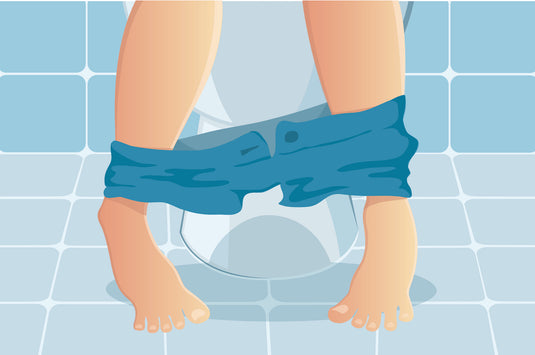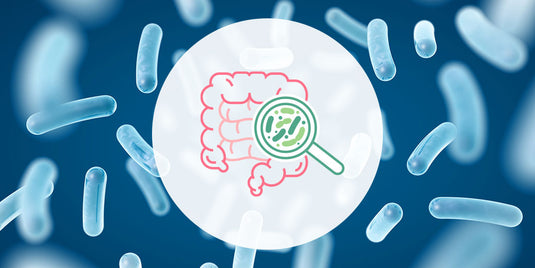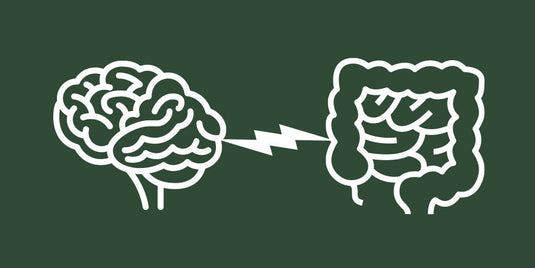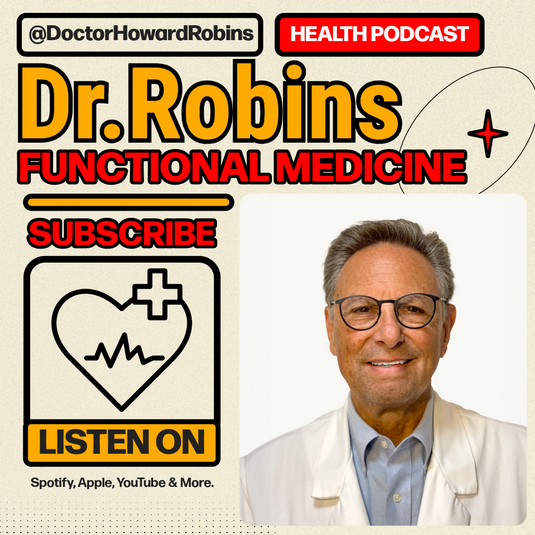It can be embarrassing or just unpleasant to talk about your poop but truth be told it can say a lot about your overall health and well-being.
If you've ever wondered about why your poop floats, we've got some answers for you. It may happen from time to time and not necessarily cause for concern. Please advise your physician on this matter.
Here are 4 common reasons why you may have experienced this:
1. Particles in stools are too small.
The particles in stool are so small, they may be lighter than the density of water. Foods rich in fiber, especially insoluble fiber, make poop less dense. Fiber-rich foods, such as fruits, vegetables, and whole grains, form a vital part of a healthful diet, so floating stool due to fiber consumption may actually signal good health.¹
2. Eat foods that cause gassiness.
Gas lowers the density of poop, causing it to float. Many high-fiber foods, such as beans, Brussels sprouts, broccoli, and cauliflower, can cause gas.
3. You may have IBS or another type of bowel disorder.
A 2015 study found that 26% people with functional bowel disorders like IBS have floating stools. ²
4. Your stools are fatty.
When the stool is very fatty, it may float. The medical term for this is steatorrhea. A fatty stool that floats may mean that a person is not adequately absorbing nutrients from food or lacks the enzymes necessary to break down certain foods.
Things you can do to have more regular bowel movements:
1. Eat a well-balanced diet, especially foods with lots of fiber.
Fiber increases the weight and size of your stool and softens it. A bulky stool is easier to pass, decreasing your chance of constipation. If you have loose, watery stools, fiber may help to solidify the stool because it absorbs water and adds bulk to stool.³
2. Take a probiotic daily.
Doctor's Biome can help with improving bowel regularity because our 17 strains of probiotics specifically target the colon, which is responsible for processing waste so that emptying the bowels is easy and convenient. The colon removes water, salt, and some nutrients forming stool.4
3. Try to minimize the amount of fried foods you consume, especially if you have chronic digestive issues.
Fried foods or any foods high in fat can move, undigested, through the body too quickly, leading to diarrhea, or stay in your digestive tract too long, causing you to feel full and bloated.
Sources
1. https://www.medicalnewstoday.com/articles/325274#causes
2. https://www.ingentaconnect.com/content/wk/ejghe/2015/00000027/
00000008/art00015
3. https://www.mayoclinic.org/healthy-lifestyle/nutrition-andhealtheating/indepth/fiber/art20043983#:~:text=Dietary%20fiber%20increases%20the%20weight,Helps%20maintain%20bowel%20health.
4. https://my.clevelandclinic.org/health/articles/7041-the-structure
andfunctionofthedigestivesystem#:~:text=The%20large%20intestine%2C%20or%20colon%2C%20is%20responsible%20for%20processing%20waste,small%
20intestine%20to%20the%20rectum.
Ever wonder why your poop floats?

RELATED BLOGS
Understanding Probiotic Strains for Better Digestive Health
Probiotics are living microorganisms that support a healthy gut—but not all...
Understanding the Gut-Brain Connection
The gut-brain connection, plays a powerful role in everything from mood...

![THE DOCTOR’S BIOME® DIFFERENCE [We Have the Smarts and the Charts]](http://doctorsbiome.com/cdn/shop/articles/DB_Difference_Infographic_27fc57ba-5eda-489e-b6d1-45f50e7c49a8_535x.jpg?v=1748981561)

